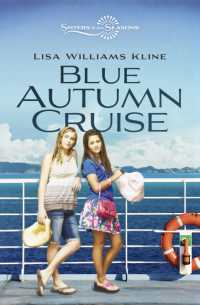- ホーム
- > 洋書
- > 英文書
- > Business / Economics
基本説明
Provides an excellent comparison of the Capability and Happiness approaches to well-being to overcome the rigid boundaries of the conventional economic approach.
Full Description
Few would dispute that the well-being of individuals is one of the most desirable aims of human actions. However, approaches on how to define, measure, evaluate, and promote well-being differ widely. The conventional economic approach takes income (or the power to acquire market goods) as the most important indicator for well-being, and the utility function as the formal device for positive and normative analysis. However, this approach to well-being has been questioned for being seriously limited and other approaches have arisen.
The capability approach to well-being, which has been developed during the last two decades by Amartya Sen and Martha Nussbaum, and the Happiness Approach to well-being, championed by Richard Easterlin, both provide an alternative. Both approaches come from different traditions and have developed independently, but nevertheless aim to overcome the rigid boundaries of the conventional economic approach to well-being. Given these common aims, it is surprising that little comparative work has been undertaken across these approaches. This book aims to correct this by providing the reader with contributions from leading names associated with both approaches, as well as contributions which evaluate the approaches and contrast one with the other.
Contents
Introduction ; 1. The Economics of Happiness and Capability ; 2. Life Cycle Happiness and Its Sources: Why Psychology and Economics Need Each Other ; 3. In Defence of Happiness: Why Policymakers Should Care About Subjective Well-Being ; 4. Some Insights on Development from the Economics of Happiness ; 5. Back to Aristotle? Happiness, Eudaimonia and Relational Goods ; 6. Capabilities and Happiness: Potential Synergies ; 7. The Division of Labour Between The Capability And The Happiness Perspective ; 8. Self-Determination Theory and the Explanatory Role of Psychological Needs In Human Well-Being ; 9. Know Thyself and Become What You Are: A Eudaimonic Approach To Psychological Well-Being ; 10. Capabilities, the Self, and Well-Being ; 11. Subjective Quantitative Indicators of Human Agency ; 12. The Philosophical Foundations of Subjective Measures Of Well-Being ; 13. Capability, Happiness And Opportunity








